Sedgwick County is planning to expand the Regional Forensic Science Center in order to meet the increasing demand for DNA analysis in criminal cases.
The $4 million project will begin in 2018, and it will be the second expansion in the center’s 21-year history. KMUW’s Deborah Shaar had an opportunity to see how crime science happens.
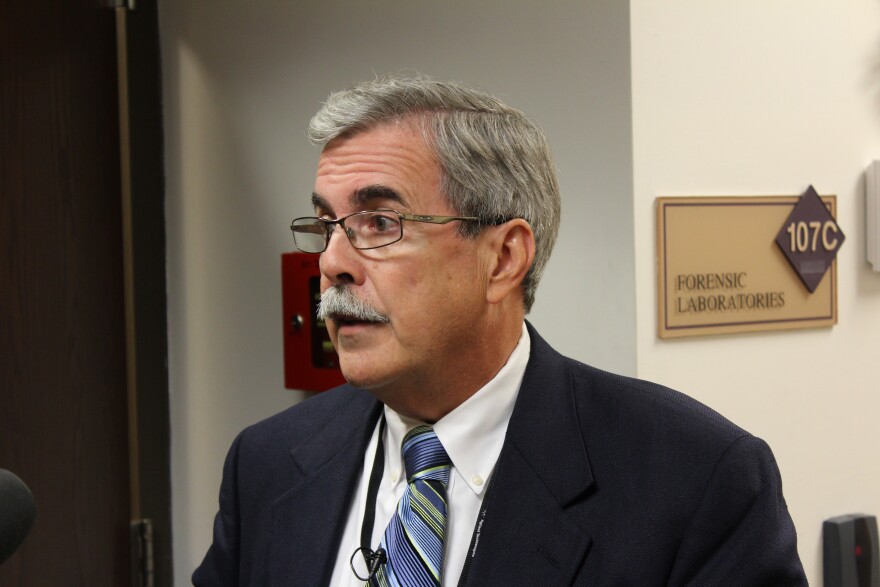
Center director Tim Rohrig is leading a small group into the drug laboratory at the Regional Forensic Science Center near 11th and Minneapolis in central Wichita. The room is large, with metal tables, lots of test tubes and instruments behind glass covers.
This is where scientists analyze the composition of illicit drugs. Pills, powders and vegetation seized by law enforcement are submitted for analysis.
About 85 percent of the center’s casework involves drugs which are grown or produced illegally--anything from marijuana to LSD compounds, to cocaine and methamphetamine. Rohrig says his team is seeing more prescription drugs.
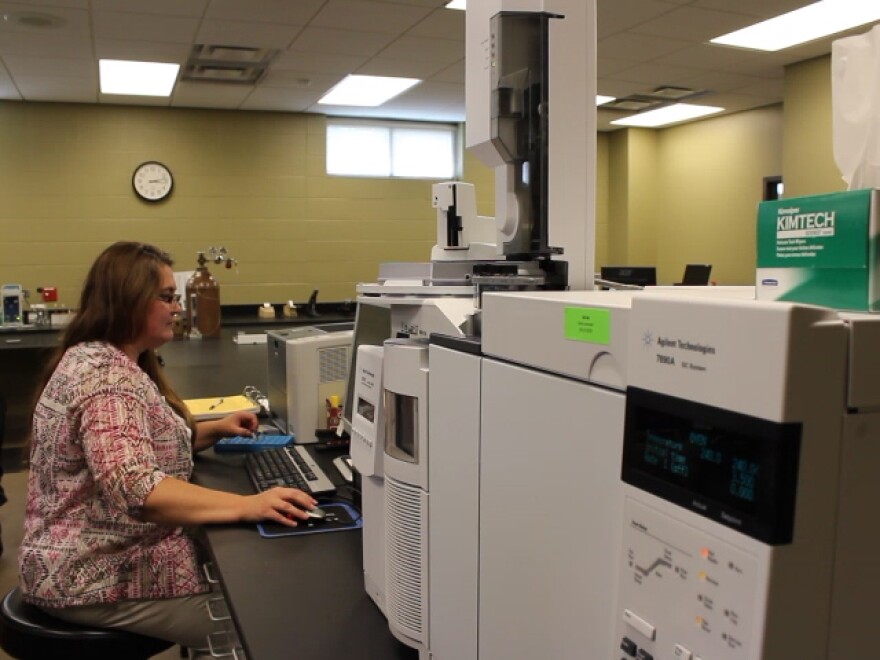
It’s forensic scientist Jennifer Miller’s job to identify the drug and determine the exact purity. She loads test tubes into a machine that looks like a copier and can identify at a molecular level what drug compound is present in the powder or paraphernalia being tested.
The forensic scientists worked on about 5,000 lab cases last year. There is a backlog, but Rohrig says that doesn’t affect crime investigations.
"We are striving for a 30-to-60-day window on any cases," he says. "In the drug lab, since we are down a person, we got a little bit behind, but we should be back in that 30-day window very quickly."
Another area of the Regional Forensic Science Center that’s seeing a growing caseload is the DNA lab. Rohrig says the criminal justice system is focusing on a more rigorous form of DNA testing and analysis, and that’s overwhelming the DNA staff and lab space; here, they have a 60-day backlog.
"Those cases have creeped up. I think we are sitting about 40 or 50 cases that are older than 60 days," Rohrig says. "But they are not months old."
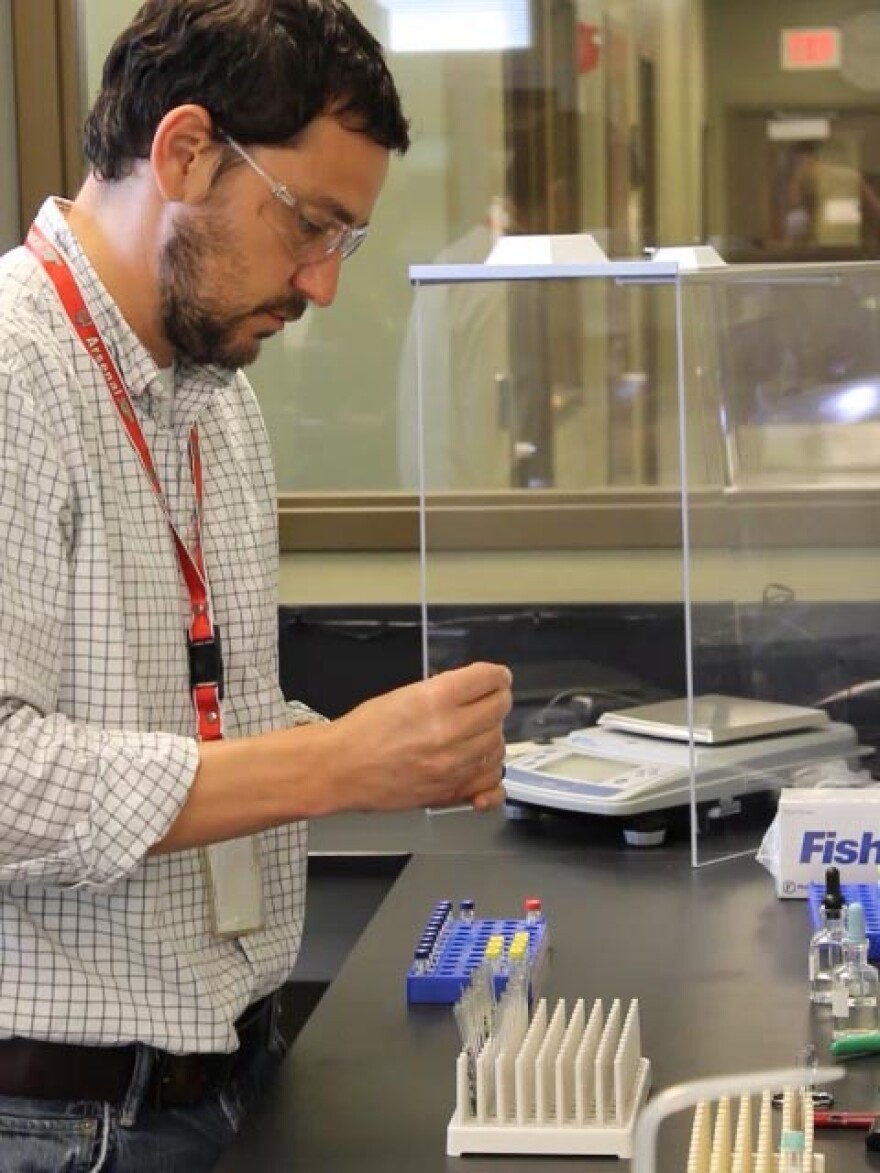
The county plans to build a two-story, state-of-the-art DNA laboratory to meet the current demands and accommodate future growth. It’s a project that’s been on the county’s “watch list” for several years and now will become a reality in 2018.
The $4 million project includes re-purposing the old DNA space for the toxicology laboratory.
The scientists in this lab identify drugs or poisons in biological material such as blood samples. They work on autopsies and DUI cases. When crashes result in a serious injury or death, investigators need to know if the driver was using alcohol or drugs.
"We’ll do about 200 drug-driving cases through this laboratory, so they are very, very busy," Rohrig says. "We can probably identify maybe 1,000 different drugs that may be present in an individual."
What the forensic scientists and pathologists find in each case is important, because the results will often be used in court.
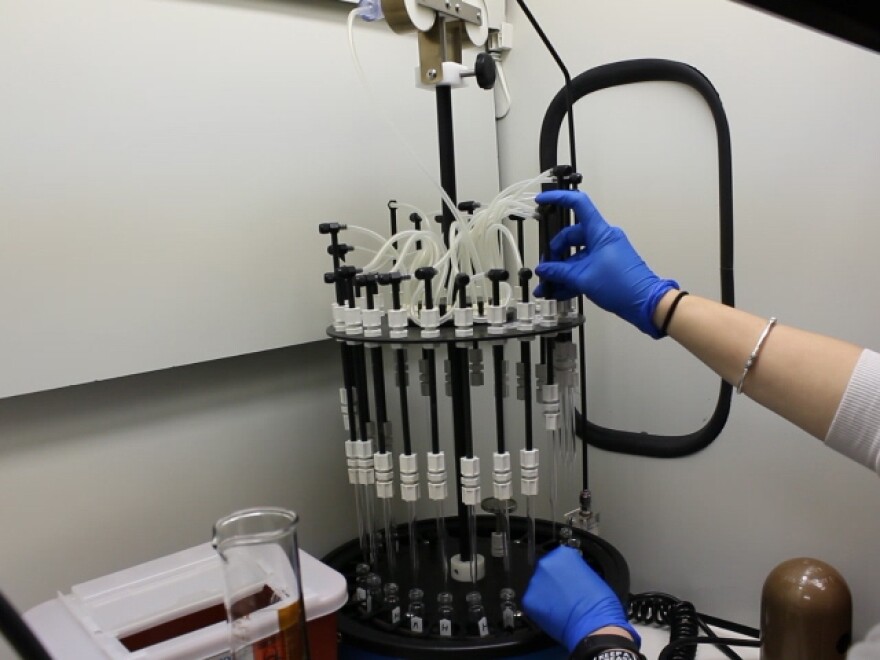
Last year, the staff received more than 1900 subpoenas resulting in 250 hours of testimony. Rohrig says the center’s results are highly critical for the cases going to trial.
"Because in many cases, our results mean someone may go to jail, may not go to jail. Somebody may go to jail for a long time," he says. "We still have some death penalty cases or the Hard 50 that have been in the news lately."
The center has a quality assurance program in place to prove its work and results are solid. Scientists complete proficiency tests each year and examination reports are challenged and re-tested to confirm the findings.
In addition, access to the laboratories is highly restrictive to help protect the integrity of evidence. A detailed chain of documentation begins when law enforcement agents drop off evidence.
"We can track every piece of evidence from the minute it hits the door to the time it leaves this facility," Rohrig says. "So there’s never a question of somebody having unauthorized access to that evidence, [or] exactly where that evidence was at any point in time."
Most crime labs are part of a law enforcement agency, but not the Regional Forensic Science Center: It’s an independent entity.
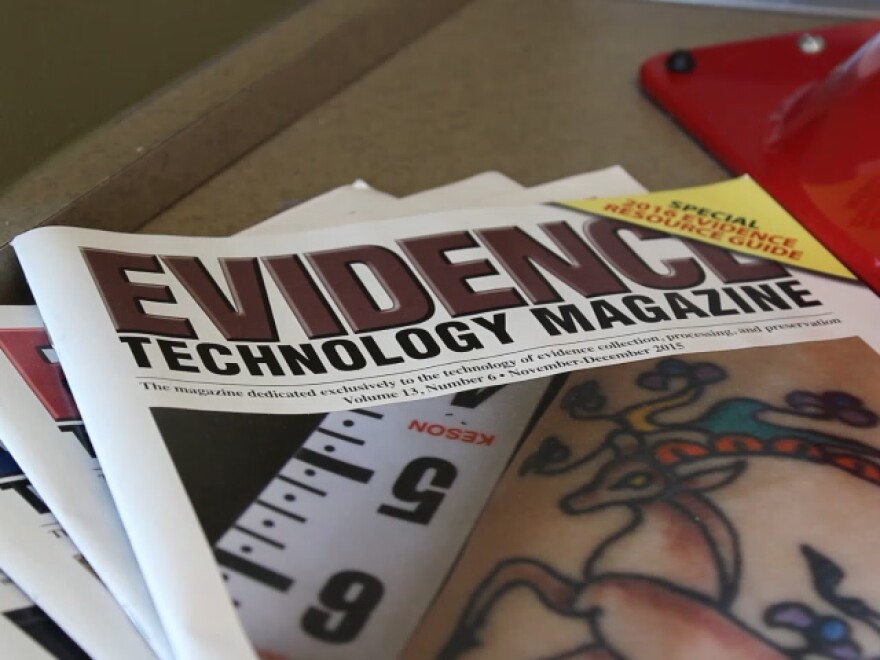
Because the lab reports to Sedgwick County government, there is no question of bias when scientists have to bring their findings into court. It has allowed the forensic lab to accumulate 20 years of trust within the region's crime-fighting agencies.
"There’s a push in the United States to make the crime laboratories independent of law enforcement—not because there is a for real bias, but there is that perception," Rohrig says. "So they want us to be as neutral as possible, so we do that."
Rohrig has been with the forensic science center for 17 years. He says he’s proud his staff of 37 leads the state when it comes to educational horsepower. The lab has the highest number of advanced degree scientists, and many of them are nationally recognized.
"My mantra has always been, 'I want the highest quality, and if it takes a little bit longer to do it, so be it,'" Rohrig says.
The center has approval to add another forensic scientist next year, and then, when the new DNA laboratory is finished, there will be room to add several more scientists.
--
Follow Deborah Shaar on Twitter @deborahshaar.
To contact KMUW News or to send in a news tip, reach us at news@kmuw.org.



